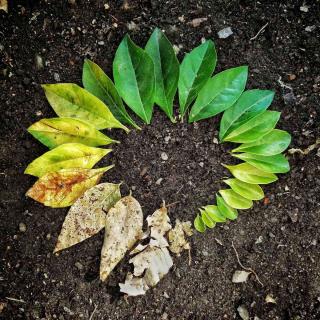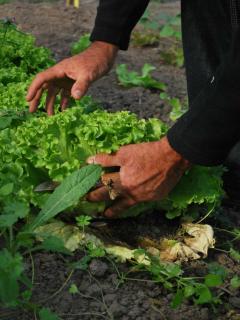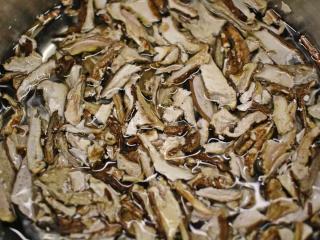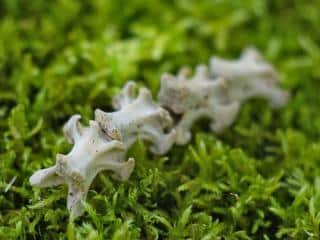

If you want to stop bloating your vegetables with polluting chemical fertilizers, it is time for you to familiarize yourself with natural fertilizer!
No need to keep poisoning underground water reserves anymore, nor upsetting delicate local environments with chemical residues.
Follow the lead of pioneering organic vegetable growers. They consider that soil is much more than just basic, sterile soil mix. According to them, it is alive and deeply connected, as if it were a single complex living being.
 As a consequence, you needn’t even try to feed the vegetables themselves at all. Your target is to nourish the “biocoenosis“ as a whole (micro-organisms, plants, animals that are part of soil).
As a consequence, you needn’t even try to feed the vegetables themselves at all. Your target is to nourish the “biocoenosis“ as a whole (micro-organisms, plants, animals that are part of soil).
Organic matter increases through:
Lastly, legume family plants come in very handy to incorporate atmospheric nitrogen into soil at root level.
 These plants are sown and then buried into the ground to enrich it in nutrients. This technique is called “green manure“.
These plants are sown and then buried into the ground to enrich it in nutrients. This technique is called “green manure“.
 Great nettle (Urtica dioica) is rich in nitrogen and various trace elements (iron, for instance). Fermented stinging nettle tea has many potential applications: fertilizer, compost activator, insect repellent, etc.
Great nettle (Urtica dioica) is rich in nitrogen and various trace elements (iron, for instance). Fermented stinging nettle tea has many potential applications: fertilizer, compost activator, insect repellent, etc.
Russian comfrey plays a part similar to that of nettles, with fermented comfrey tea.
Any plant material chopped and tossed in a pail to rot will break down into very effective fertilizer. Mushrooms, pictured above, contain lots of rare nutrients.
 They are extremely diverse and space lacks us to list them all! We’ll simply mention two:
They are extremely diverse and space lacks us to list them all! We’ll simply mention two:
Quite a lot of healthy home waste can also serve to enrich soil, too – including urine!
These can be amended directly into earth in the vegetable patch in fall or through the compost. Note that whole bones release nutrients over years, whereas ground powder shortens it to months.
Pierrick the organic gardener
When using seaweed, remember to rinse salt out of it or you’ll make your soil barren. Simply set it outside on a table or wire tray at waist height and let rain soak through it several times for the salt to wash away.